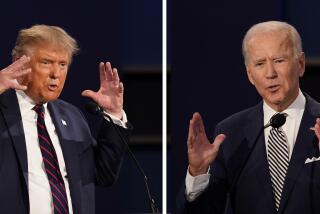Bills Reconcile State, Federal Tax Rules
SACRAMENTO -- State lawmakers approved legislation Thursday that will allow millions of Californians to contribute more money tax-free to 401(k) plans, individual retirement accounts and education IRAs.
Bills introduced by Assemblywoman Ellen Corbett (D-San Leandro) and Sen. Jack Scott (D-Altadena) change the state’s tax code so that it conforms with federal tax incentives adopted last year.
The state’s delay in making the changes has created confusion and anxiety for many Californians, who feared their 401(k) contributions, for example, were in jeopardy of being disqualified if they took advantage of the federal enhancements.
“This is important for every Californian who is worried about their retirement and who is concerned about saving for their children’s education,” said Corbett, chairwoman of the Assembly Revenue and Taxation Committee, of her AB 1122. “These issues hit home in just about every household in the state.”
Scott said the disparity addressed with his SB 657 has “drawn more mail and constituent response than any other issue this year.”
The legislation touches tax-conscious Californians in a key way: It allows them to reap benefits from the federal changes on both their federal and state tax bills. Both measures make the conformity changes retroactive to Jan. 1, which will be reflected on returns filed by next April.
Gov. Gray Davis is expected to sign both pieces of legislation.
“When you have new federal laws to allow individuals to put more into deferred savings for their retirements, it makes sense to conform at the state level,” Davis spokeswoman Hilary McLean said.
The federal law will boost allowable contributions to IRAs from $2,000 to $5,000 by 2004, and to educational IRAs from $500 to $2,000. It also will increase annual limits for contributions to 401(k), 403(b) and 457 retirement plans from $10,500 to $15,000 by 2006.
Without the conforming actions by the state, a Californian who contributed $3,000 this year to a tax-deductible IRA--the maximum tax-free contribution for federal tax purposes, up from last year’s $2,000 limit--could expect to pay state taxes on the $1,000 difference.
Lawmakers previously sent Davis another conformity bill by Corbett, AB 131, which makes it easier for public employees to take pension assets with them as they move from public- to private-sector jobs.
The tax conformity legislation sailed through the Senate but met resistance in the Assembly from Republicans, who floated a series of amendments to eliminate what they argued were six tax increases embedded in the legislation.
“It’s clear the taxpayers of this state cannot count on this Legislature to protect them,” said Assemblyman Russ Bogh (R-Cherry Valley), who reminded lawmakers that Davis has pledged not to support tax increases this election season.
Democrats, who hold a 50-30 majority in the Assembly, rebutted the Republican arguments and defeated the amendments, saying the measures simply mirrored the federal changes. Both bills ultimately passed on a 42-17 party-line vote.
The heart of the dispute was whether short-term revenue increases resulting from the changes represent a tax increase.
Republicans called the measure a tax hike because it would initially result in a windfall of more than $260 million to state coffers. They charged Democrats with structuring the cash flow to help combat this year’s massive state budget shortfall. Democrats noted the treasury gains would be short-lived and said the measure would result in little to no increase in tax revenue over time and would actually cost the state tax revenues in the long run.
Corbett emphasized the need for lawmakers to find a way to conform to the federal rules without further exacerbating the state’s financial situation. California is expected to face a budget shortfall of $20 billion or more.
More to Read
Get the L.A. Times Politics newsletter
Deeply reported insights into legislation, politics and policy from Sacramento, Washington and beyond. In your inbox three times per week.
You may occasionally receive promotional content from the Los Angeles Times.






